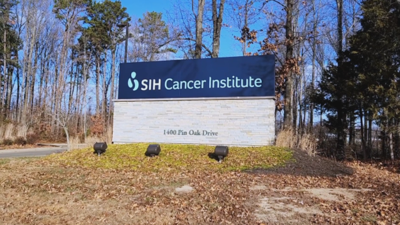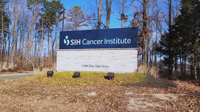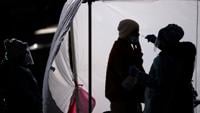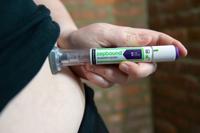CARTERVILLE, Ill. (WSIL) -- A decade ago, the landscape of healthcare was transformed for many individuals in and beyond our region. The SIH Cancer Institute opened its doors 10 years ago, bringing cancer care closer to home.
Before the opening in March of 2015, patients and loved ones faced long journeys just to seek treatments. Now, world-class care is available right here, in Carterville. The SIH Cancer Institute now welcomes more than 300 patients each weekday,
Dr. Muhammad Popalazi, medical director and hematologist/oncologist, has been instrumental in shaping the cancer institute since the beginning. He notes the institute has had a 360 degree impact on the community.
"We are able to offer good treatments to our patients, on the other hand, we are also able to create good quality jobs, and very satisfying jobs to the community. And seeing the skill level of people in our staff going up is also part of that impact," says Dr. Popalazi.
Angela Absher-Sample, a patient who has successfully completed radiation treatment for breast cancer, shares her experience receiving personalized around-the-clock care from a multidisciplinary team.
"The fact that it is in our own backyard is huge. You come in here, if you're tired and you just don't think that you can leave, you need to rest, they'll find you a place to rest. If you're hungry, there's a place right down the hall, you can get anything you want. They will take care of you. And if you need something in the middle of the night, they'll make sure or do whatever they can to help you," said Absher-Sample.
Surgical oncologist, Dr. Suven Shankar, discusses the benefit of advancing procedures has on the community.
"What excites me is that we're going to have better survival. But I touch up on the screening aspect that Dr. Popalazi brought up. You know, I feel like that's what's going to hit community care is, you know, finding a cancer sooner, finding the cancers that you can have targeted therapy for, potentially having less surgery if you don't have to have it. Improving overall survival equals community health," said Dr. Shankar.
Dr. Michael Little, radiation oncologist, speaks on how the evolution of state-of-the-art technology has changed the approach to treatment within the last decade.
"Ten years ago, you know something that's small and changing may not have been really not relevant. Sometimes today, you know, someone's been on treatment for five years and we see a small change and that's a target for radiation that we would want to take advantage of, so our treatments have become more specific," says Dr. Little.
Dr. Little adds the community aspect of a smaller city allows physician and patient relationships to be more personalized, allowing physicians to relate to the life they strive for their patients to get back to.
With continuous advancements in cancer research, the institute is looking forward to providing exceptional care for many years to come.














